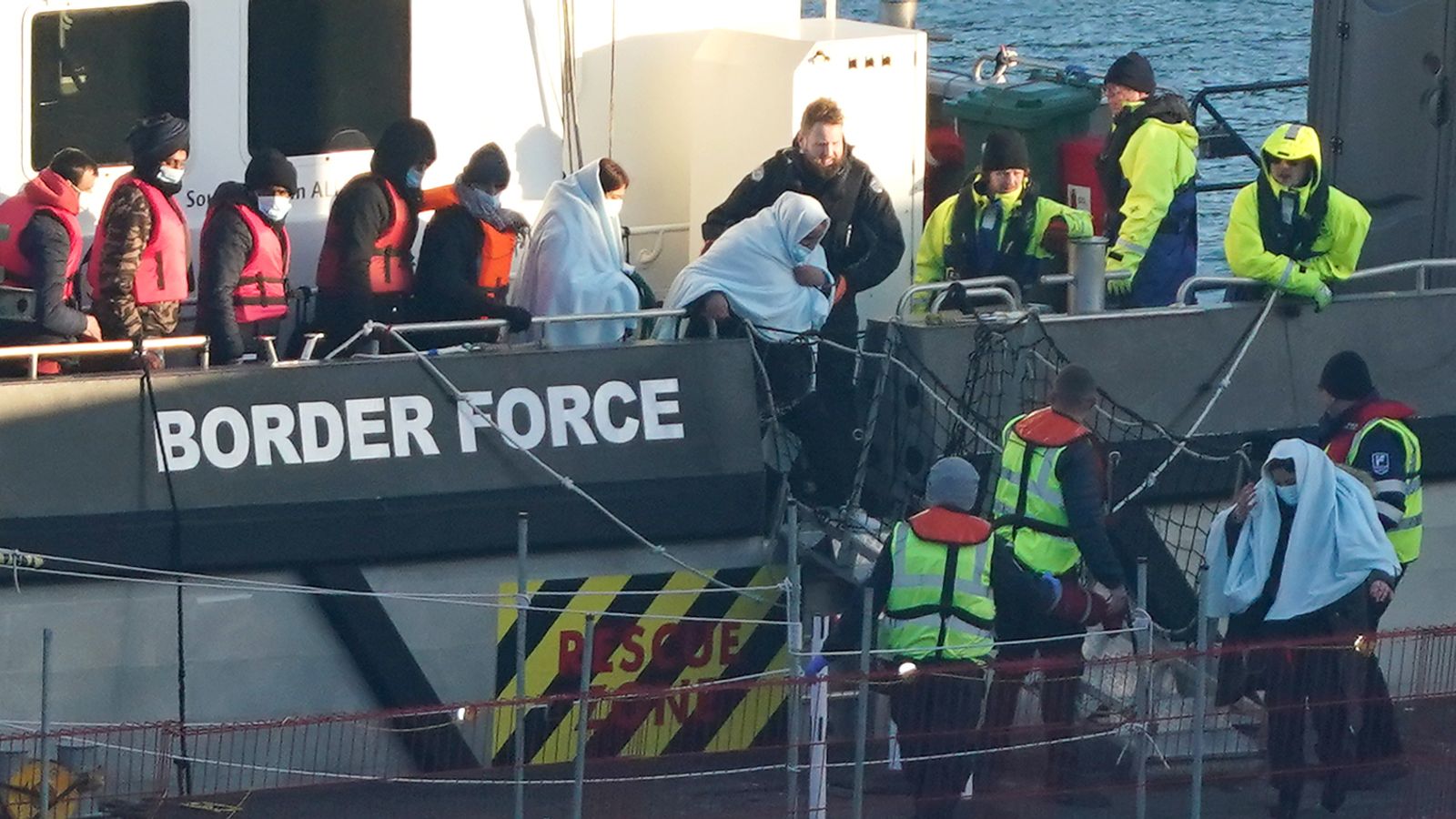Rishi Sunak says migrants crackdown needed as current system ‘unfair on British people’

Rishi Sunak has said the crackdown on small boats crossing the Channel is needed as the current system that is being exploited is “unfair on the British people”.
The prime minister described the new Illegal Migration Bill as “tough, but it is necessary and it is fair”.
“This will always be a compassionate and generous country… but the current situation is neither moral nor sustainable, it cannot go on. It is completely unfair on the British people.”
As Mr Sunak spoke, the UN Refugee Agency said it is “profoundly concerned” by the government’s plans which it said would “amount to an asylum ban”.
But Mr Sunak insisted “we have tried it every other way, and it hasn’t worked”.
The prime minister was speaking from Downing Street after the home secretary unveiled the new legislation that will mean people arriving on small boats in the UK will be detained and removed and banned from ever returning.
Mr Sunak confirmed that the legislation would apply retrospectively, affecting everyone arriving in the UK illegally from Tuesday.
The government has admitted the bill might not be compatible with European human rights laws – but the prime minister insisted he is “up for the fight” in the courts “and we are confident we will win”.
Responding to a question by Sky News about where predecessors went wrong and why this policy is different, Mr Sunak said: “This is not about dwelling on the past because the situation has just got far worse.
Advertisement
“In the last two years the numbers of people crossing the Channel illegally has more than quadrupled. That is the scale of what is happening.
“It’s not just us, this is happening across Europe… that’s because globally this is a challenge.”
When pressed on what success would look like, the prime minister refused to set specific targets, saying it is “us stopping the boats” and “having a system where people coming here illegally are returned”.
“And if we can get that working… we will see the numbers come down,” he said.
Home secretary accused of ‘inflammatory language’ – live politics updates
Under the proposed plan:
The bill has attracted a wave of criticism from charities, opposition MPs and human rights lawyers.
UN: ‘Bill amounts to asylum ban’
The UN’s refugee agency, the UNHCR said the legislation, if passed, “would amount to an asylum ban – extinguishing the right to seek refugee protection in the United Kingdom for those who arrive irregularly, no matter how genuine and compelling their claim may be, and with no consideration of their individual circumstances”.
The statement added: “The effect of the bill (in this form) would be to deny protection to many asylum-seekers in need of safety and protection, and even deny them the opportunity to put forward their case. This would be a clear breach of the Refugee Convention and would undermine a longstanding humanitarian tradition of which the British people are rightly proud.”
The organisation said many refugees cross the Channel by small boat because safe and legal routes are not available to them and the convention, “explicitly recognises that refugees may be compelled to enter a country of asylum irregularly”.
“Based on the Home Office’s most recently published data, the vast majority of those arriving to the UK in small boats over the Channel would be accepted as refugees were their claims to be determined. Branding refugees as undeserving based on mode of arrival distorts these fundamental facts,” they added.
Earlier, Home Secretary Suella Braverman told the Commons that she “can’t say definitively” if the new bill complies with human rights laws.
But Mr Sunak insisted there is “absolutely nothing improper or unprecedented” about pursuing legislation with a warning that they may not be compatible with the European Convention on Human Rights (ECHR).
“We believe we are acting in compliance with international law, in compliance with the ECHR, and if challenged, as you may well be right, we’ve seen in these matters we do get challenged, we will fight that hard because we believe we’re doing the right thing and it is compliant with our obligations,” he added.